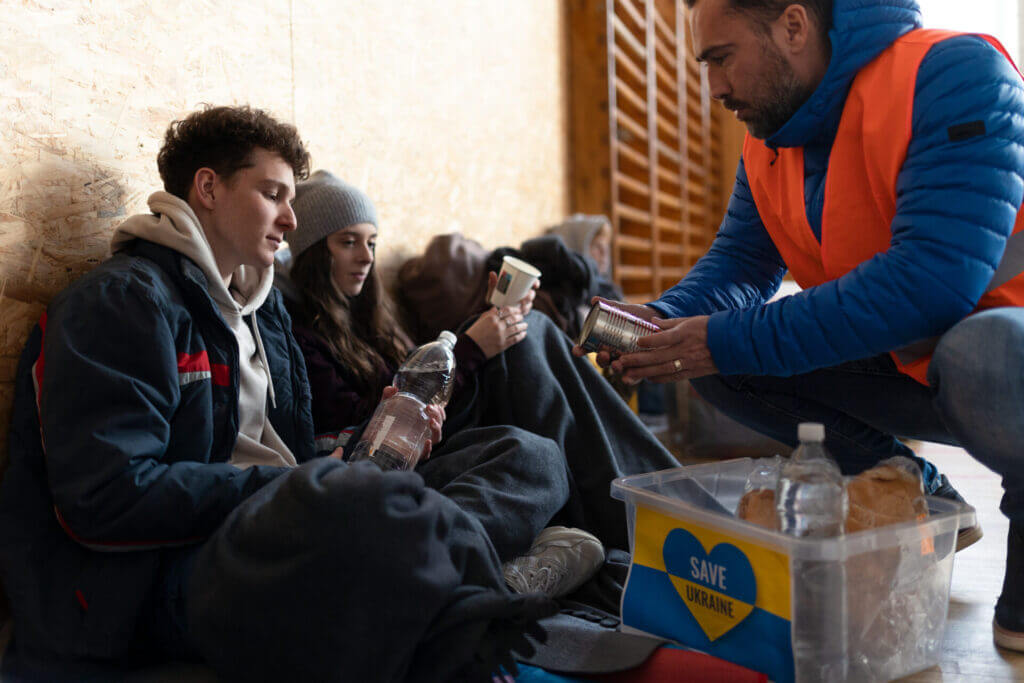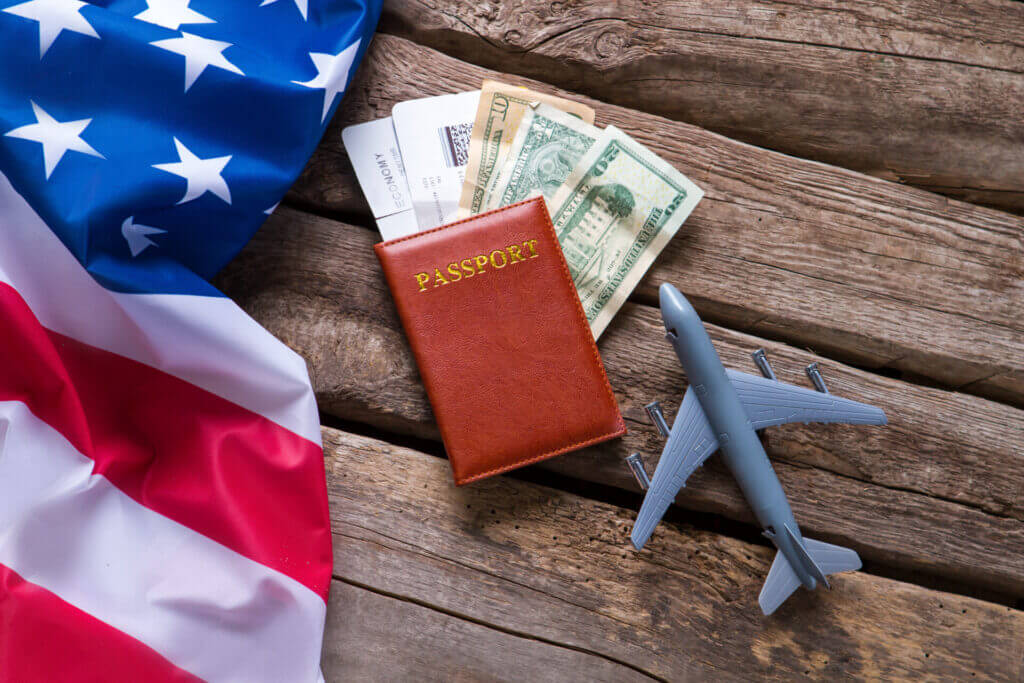What is a Humanitarian Parole?
The benefit known as “humanitarian parole,” is a public benefit for those outside the United States. Through parole, you can apply for temporary permission to stay in the United States either for urgent humanitarian reasons or for matters of significant public benefit. Urbina Law shares this guide with the requirements for humanitarian parole which will be very useful.
Purpose
Many immigrants after spending time away from their loved ones now have the possibility to apply for the benefit of humanitarian parole themselves or through an acquaintance who applies for it, if they have sufficient income. We want to facilitate the rest of the process by providing you with information about the steps to follow, and what will happen once you are approved and enter the US.
If you or someone you know would like help with this delicate process, please do not hesitate to call Urbina Law at 770-401-7646. You can also subscribe to our newsletter to stay up to date with the latest news.
Table of Contents
Requirements for humanitarian parole by the applicant:
-
Be a national of Cuba, Haiti, Nicaragua, or Venezuela (or immediate family members of any nationality traveling with the national – spouse or children under 21; if under 18 must travel with a legal guardian).
-
Being outside the U.S.
-
Have a sponsor who has been vetted by the department of USCISafter filing Form I-134A
-
Have a current and valid passport for international travel.
-
Be able to buy your own travel ticket
-
Pass a series of investigations for U.S. national and public safety.
-
Comply with additional requirements, such as being up to date with required vaccinations.
-
Demonstrate that positive discretion is warranted in your case for urgent humanitarian reasons or for the significant benefit of the public at large.
Requirements for humanitarian parole by the sponsor:
-
Have a legal status in the U.S. o having received parole or being a beneficiary of deferred action or Deferred Enforced Departure (DED) who has passed the security and background investigation, and having demonstrated sufficient financial resources to receive, maintain and support the person(s) to whom he or she has committed to support for the duration of your stay in the U.S.
-
U.S. citizens and nationals;
-
Legal permanent residents, legal temporary residents and conditional permanent residents;
-
Nonimmigrants in lawful status (i.e., who maintain their nonimmigrant status and have not violated any of the terms or conditions of their nonimmigrant status);
-
Asylum seekers, refugees and persons with temporary residence permits (“parolees”);
-
Individuals granted Temporary Protected Status (TPS); and beneficiaries of deferred action (including deferred action for childhood arrivals) or DED.
-
-
Approve security and background screening, including for public safety, homeland security, human trafficking and exploitation concerns;
-
Demonstrate that you have sufficient financial resources to receive, maintain and support the person you agree to support for the duration of your period of temporary leave to remain or parole.
-
Be willing and able:
-
Receive the beneficiary upon arrival in the United States and transport him/her to the initial housing;
-
Ensure that the beneficiary of humanitarian parole has safe and adequate housing for the duration of his or her temporary stay permit and initial basic needs;
-
As appropriate, assist the beneficiary in completing necessary documentation, such as for employment authorization, for a Social Security card, and for services for which they may be eligible;
-
Ensure that the beneficiary’s medical and health care needs are met for the duration of the temporary stay permit; and
-
As appropriate, assist the beneficiary in accessing education, learning English, securing employment and enrolling children in school.
-

Who is disqualified from the benefit of humanitarian parole?
-
Persons with dual citizenship or nationality
-
Permanent resident of, or has refugee status in, another country
-
Who does not pass the national security and public safety background investigation or is deemed not to merit a favorable exercise of discretion;
-
Those who have received an order of removal from the United States within the previous 5 years or are subject to a veto of inadmissibility based on a prior removal order;
-
Those who have crossed irregularly into the United States, between ports of entry, after the date on which the process was announced. (for Venezuelans, after October 19, 2022; for Cubans, Haitians, and Nicaraguans, after January 9, 2023), except for that persons who were allowed a single instance of voluntary departure or withdrawal of their application for admission will remain eligible;
-
Those who have irregularly crossed the Mexican or Panamanian border after the announcement date of the process (for Venezuelans, after October 19, 2022; for Cubans, Haitians and Nicaraguans, after January 9, 2023); or
-
Minors under 18 years of age who do not travel through this process accompanied by a parent or legal guardian. The inspecting officer would determine that it is an unaccompanied minor.
Important Facts About Humanitarian Parole Requirements
-
Supporters must file an I-134A for each beneficiary, including minors.
-
Several support persons can join together to support a beneficiary.
-
A petition may be filed on behalf of a business but must provide evidence of the entity’s commitment to supporting the beneficiary when filing Form I-134A.
-
If the I-134A is denied, the support person may file a new I-134A for the same or another beneficiary.
-
LApproval of advance authorization to travel does not guarantee entry or the granting of parole upon arrival at a U.S. port of entry. Such a permit entails another inspection and discretionary determination made by CBP at the port of entry based on a finding that the permit is justified due to urgent humanitarian reasons or significant public benefit.
-
Entering with parole does not automatically grant you a work permit. To obtain them, you must apply for them with USCIS.
-
Once you enter the U.S. and apply for your work permit, it is very important to keep your address up to date with USCIS so that your work permit is not misplaced.
-
If you were granted permission to stay temporarily in the United States, your permission will be automatically cancelled if:
-
Leaves the United States
-
Your temporary stay permit period expires.
-
Violates any U.S. law
-
Persons who have an expired temporary residence permit must leave the country of their own free will upon expiration of their stay. Persons in the United States who are found after their temporary stay permit has been terminated will generally be placed in removal proceedings.

Humanitarian Parole Benefit Application Process
Step 1: Financial Sponsorship
-
A support person living in the United States will file an I-134A online.
-
USCIS will then screen the support person to ensure that he or she can financially support the person he or she agrees to support and for protection from exploitation and abuse.
Step 2: Submit Biographical Information
-
If USCIS confirms a support person, the listed beneficiary will receive an email with instructions on how to create a myUSCIS account and certify that he or she meets the eligibility requirements.
Step 3: Submit the Request in the CBP One Mobile Application
-
Upon acceptance, the beneficiary will receive instructions through myUSCIS on how to access the CBP One mobile application.
-
The beneficiary must enter biographical information into CBP One and provide a photo.
Step 4: Advance Authorization to travel to the United States
-
After completing Step 3, the beneficiary will receive a notification in their online account confirming whether CBP will, at its discretion, provide them with advance authorization to travel to the United States.
-
This step is only for advance travel, it is not yet an acceptance of parole or entry.
-
If approved, this authorization is valid for 90 days.
Step 5: Obtain Temporary Permit to Stay at the Port of Entry
-
Upon presentation at a port of entry, CBP will inspect and consider you for a discretionary temporary stay permit on a case-by-case basis.
-
At this step, they will have an additional biometric fingerprint screening consistent with the CBP inspection process.
-
Individuals who are determined to pose a threat to national security or public safety, or who do not otherwise warrant temporary permission to stay as a matter of discretion following inspection, will be processed under an appropriate processing pathway and may be referred to U.S. Immigration and Customs Enforcement (ICE).
Step 6: Temporary Permit to Stay
-
Those granted temporary permission to stay pursuant to this process will generally receive temporary permission to remain in the United States for a period of up to two years, subject to health and investigation requirements, and will be eligible to apply for employment authorization under existing regulations.
-
Individuals may apply for employment authorization from USCIS by filing an I-765.

Frequently Asked Questions
-
The beneficiary received a parole and wishes to travel with a family member who has a tourist visa Can the family member enter the United States?
-
Unfortunately, it is possible that a person with a tourist visa will not be allowed entry and will have his or her visa canceled. It may also happen that you are allowed entry and put in a removal process because your interest is not to come on a trip but to stay with the person who received the parole.
-
-
I have a tourist visa, but I want to apply for parole, can I do it?
-
You can apply to the process, but you will have to explain why you deserve to be considered for this benefit already having a tourist visa. If accepted, your visa may be cancelled in the future.
-
-
I want to bring my minor child under this process, can I pick him up when he is approved and travel with him to the US?
-
Unfortunately, no. For a child to travel, he/she must travel with a guardian as part of the same package.
-
If you wish to bring your minor without also petitioning for a guardian, you will need to use the regular parole process and file Form I-131.
-
-
My relative is already in the process of receiving residency. Can you initiate a humanitarian parole application?
-
It is possible to use this process but you will need to demonstrate why you need it if you are already in another process that will give you a more permanent status in the US.
-
You are not alone
Initiating a humanitarian parole application process can sometimes be very overwhelming. We know that it is often difficult to take the first step as an immigrant. That is why the professionals at Urbina Law are committed to helping you achieve your dreams.
If you or someone you know would like help with this delicate process, please call our office at 770-401-7646. You can also subscribe to our newsletter to keep up to date with the latest news.



